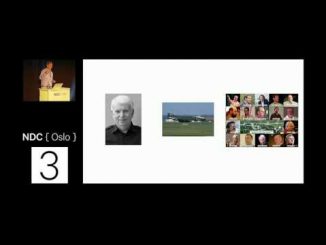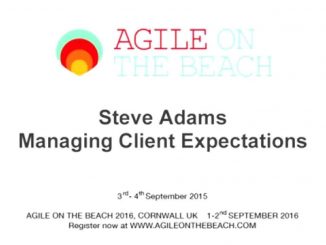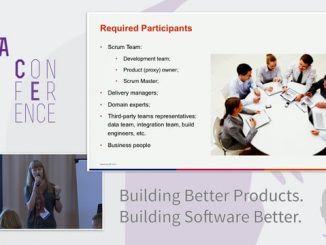Videos on Scrum and Agile Project Management
Jeff Sutherland makes a convincing argument of using Scrum outside of software development in his recent book Scrum: The Art of Doing Twice the Work in Half the Time. A full 111 years before Sutherland published this book, the Wright Brothers practiced scrum to outmaneuver better funded and more entrenched competitors. REPL driven development is a technique that comes to business software creation from the scientific computing community.
Business that want to earn money and people who want to make a difference! In the morning everything looked so promising. When they met it was a disaster. Will the goals be achieved? Can the dream survive? You will dive into the story and live it through. You will see emotional snapshots from people’s lives that eventually brought them to the real value(s).
Building great teams isn’t just something that managers do alone, with spreadsheets and workflows and process documents. Great teams come from the participation of the group to push the team there. This presentation discusses how you can think about your role in creating a high-performance team, whatever your job title is.
‘Agile’ is an incredibly powerful software development methodology, however the word ‘agile’ has become one of those IT buzzwords that people use but do not fully understand.
Agile versus Waterfall is often presented as a difference in development methodology, but it is much more a clash of cultures. Large bureaucracies, government regulation and many other factors can create an environment that is hostile to many forms of innovation and in which Waterfall is actually the most cost-effective approach.
It can be complicated to involve the whole team to facilitate product backlog refinement and take part in requirements discussions. I would like to suggest a structure of the PBR (product backlog refinement) meeting that will encourage everybody to speak up and share their ideas on functionality.
There are now several frameworks designed for scaling agile. This talk explains the flaws in such frameworks, why they so often fail to produce the desired effects, and what we should do instead. It also addresses some common organizational obstacles to moving fast at scale: governance, budgeting, and the project paradigm – and discusses how to address them. Warning: this talk includes liberal use of real, statistically sound data.








